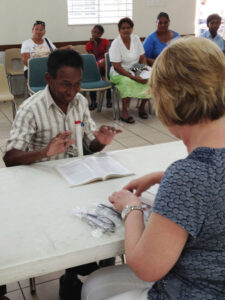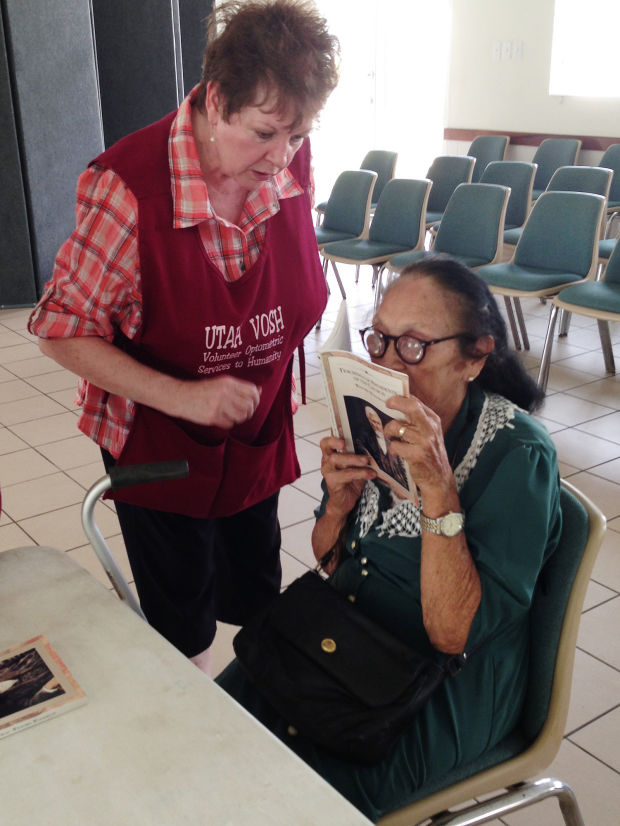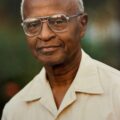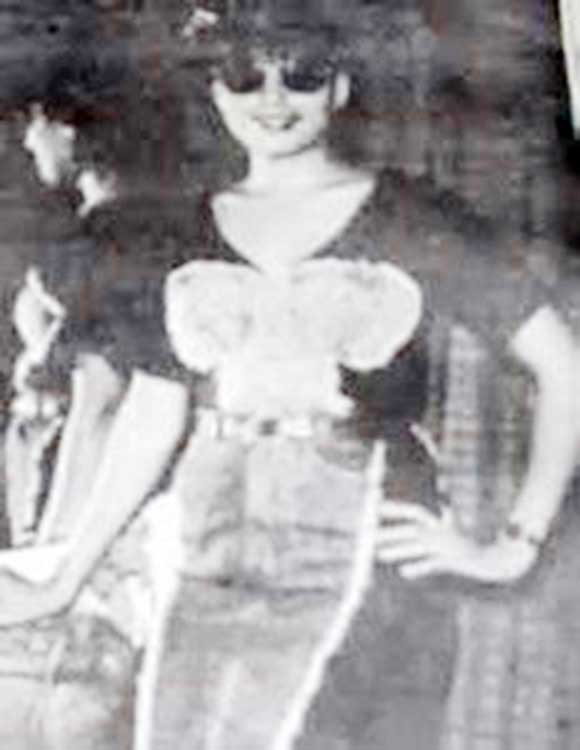More than 2,000 pairs of eyeglasses from Utah recently found new homes — in Guyana.
Used glasses, often relegated to the backs of drawers, went to good use by people too poor to afford glasses or eye exams. Twenty-two Utahns, including several optometrists, made a humanitarian trip to provide eye care in the Third World country in South America.

“One lady walked five hours to get to us,” Dr. Robert Gray said. “There would be people who started lining up at 5 or 6 a.m. We weren’t going to start exams until around 8:30. She had to leave in a couple of hours because she had to walk back five more hours and catch a ferry or else sleep in the woods overnight. We were able to get her a nice pair of glasses.”
“When I examined one guy he had exactly my prescription,” he said. “I gave him the glasses off my face. He came back and thanked me three or four times. I happened to have a brand new pair. He was so excited that I had given him my glasses and that he could see.”
Gray had a backup pair for himself.
Others were dramatic for different reasons.
“One young student, around 20, had an exam and the numbers were way high,” he said. That was an indication of blindness. “We were able to find a pair of glasses that worked perfectly. She went from being legally blind to being able to see.”
“One man walked in from the jungle,” he said. “He said he was glad for the glasses so he could see to shoot his gun to get food for his family.”
They helped about 1,800 people and gave away 2,500 pairs of glasses. The prescription glasses were all used, but some of the over-the-counter reading glasses were left to be distributed in the future, with some headed to the Dominican Republic. Some people received two pairs so they would be sure to have the right one, or in case one broke.
Before leaving, the doctors sorted the glasses according to the prescription, whether they were for men or women and whether they were single vision or bifocal. They were concerned that on the last day, they might not have the correct prescriptions for those who came in.
“We were worrying about the people who were going to come in on Thursday,” Reid Robison said. He accompanied the doctors and helped with the project. “We found it hard to have the exact power or match.” They were surprised, however. “We literally found glasses that we didn’t think were there. They were fabulous.”
The project started when Robison went to Dr. Ronald Pugh for an eye exam.
“He told me about projects he had done,” Robison said. “He collected glasses among eye doctors in the Utah area. They had gone to places like Mexico and Honduras.” Since safety was now a concern in those areas, he was considering other venues.
Robison had served as an LDS mission president in an area that included Guyana. He told Pugh about the area and that Guyana was the most “Third World” in the vicinity, but that it was relatively safe and the people speak English. Since he knew the area, he helped pave the way for the group’s work. He went along with the doctors and assisted in distributing the glasses.
“It was a series of wonderful surprises one after another,” he said.
One of those surprises was how the doctors conducted exams. They used hand-held equipment and did the testing without asking questions, like people in the United States are accustomed to in eye exams. Robison had his eyes checked in the same manner, as a test.
“In five or six minutes he had the power of my glasses,” Robison said. “It came within one click of my power.”
Some local doctors also helped them. They left behind some of the hand-held devices for their future use.
“I am positive that the local optometrists learned much from working alongside our Utah doctors,” Robison said.
The team saw success and the happiness that came from it.
Lynda Pugh, Ronald Pugh’s wife, also went.
“One said ‘Now I can see the faces of my grandchildren.’ Another said, ‘Now I can read my Bible.’ ”
“One little boy came in with brothers, sisters and their mother,” she said. “They didn’t associate with him. They thought he was handicapped. We did the exam and found how he needed glasses. Even his mother didn’t know. He couldn’t do sports, couldn’t learn and kept bumping into things. He was probably only 6 or 7. Even his mother was shocked.”
Pugh became interested in the projects, which he has been doing since 1984, when he attended a meeting of eye doctors. He saw a map showing where in the world eye care was available.
“Over half the world will live and die, never having eye care, never having glasses,” he said. “Every one of them will lose their ability to read when they can’t see far away or close up. That is where I made my determination that I couldn’t do everything, but I could do something.”
Lynda Pugh said their trips to areas not served by eye doctors have been rewarding.
“You can see the thrill on their faces,” she said. “Sometimes it is an ugly pair of glasses. We never have mirrors. We tell them we are trying to bring the gift of sight. They say — ‘I can see,’ ‘I can read’ or ‘it is clear.’ I hear those over and over again. If they walk out wearing the glasses that is good, too.”
Robison said he enjoyed the opportunity and encouraged others to take part in future trips.
“I hope that many local couples as the children leave the nest will be interested in opportunities such as this because there are countless things people can do to serve,” Robison said. “Also, collecting glasses is a great service project for youth.”
Any glasses will work, but they often have a special need for children’s glasses, as they are not donated as often.
“It is extremely fulfilling,” Pugh said. “You find somebody with a lot of astigmatism and correct it. It is just good. Anybody that wears glasses can understand how it is without. There are hundreds of people everywhere that don’t have it.”
He said they will continue with this service project.
“We will keep doing it as long as we have health,” he said. “There is always a need.”
Anyone who would like to donate glasses or help on a future project may contact the Pughs at (801) 373-0440, or come to the office at 2696 N. University Ave. in Provo from 9 a.m. to 5 p.m. Monday to Friday. They can use help on everything from sorting glasses to going to the countries.
By Barbara Christiansen who covers news in American Fork ˜ government, schools, residents, business and more.






